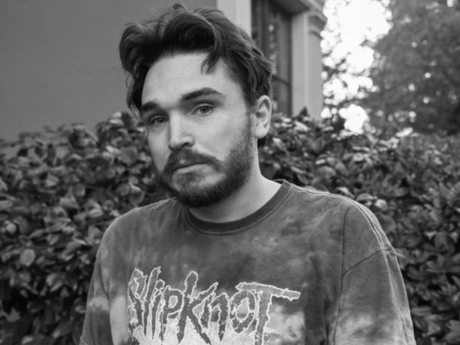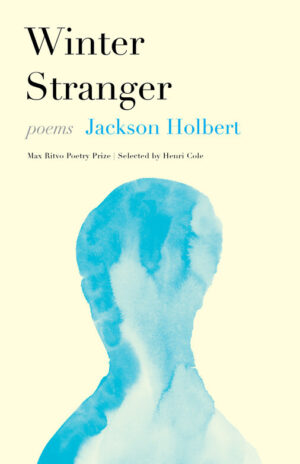In Their Own Words
Jackson Holbert on “World War I Poem”

World War I Poem
All through the war
there’s no singing,
then one day
everyone’s singing.
And we are unprepared, the friends
of the dead, we who wake now
without reason while all about us
cars fly by sailing little
flags, little stupid flags,
while children sing
through the broken windows
of provincial churches.
Everyone knows that the bones
go away faster without marrow,
that a god, outmoded and outdefined,
cannot manage every fixture of the day
and so gives each day allotments
of sound, light, pain,
meaning when there were great bombardments
the whales went silent,
when rifle regiments with ancient names
raised their weapons to the sky
and fired hopelessly at scouting planes
someone, dying alone
suddenly found himself
unable to scream. And the sound
that’s left after that, the thin ribbons
not eaten up by rifle fire
move through us in waves—
miracle waves, dread waves—and the gone
feel nothing, say nothing, which means
the children can sing a little louder.
Reprinted from Winter Stranger (Milkweed Editions, 2023) with permission of the author and publisher. All rights reserved.
On “World War I Poem”
When I began this poem I was in the middle of rereading Paul Fussell’s The Great War and Modern Memory, which discusses World War I and the artistic responses to it in depth. At one point, he writes “Like the typewriter and the internal combustion engine, many believed that war on the European continent was simply another permanent fixture of 20th-century life.” I couldn’t get that idea—that World War I was seen by some as literally interminable—out of my head. So I started this poem.
The first draft was about six pages long and full of messy, angry stanzas that did little to progress the poem. I spent probably 20 hours over a 6 month period cutting the poem down, reading it aloud, then cutting it down some more until it was about a page and a half. The poem, in that iteration, began with a few quatrains of questions. Here is one of those cut quatrains, just to give a sense of what those pieces looked like. “Why not the tall bandits / and their frozen toes, / the black airplanes / landing through the evening?” Those questions sounded nice—at least to me. But they seemed to have little to do with the people, and much more to do with, well, sounding nice. So I cut them and ended up with something closer to this final draft. At that point it became clear to me that this poem is, fundamentally, about the logic of peace and the logic of war. The people in the poem wake into a world in which the war they thought would never end is over. They’re still living with the toll of that war while, around them, everyone is celebrating. The logic of war—through the idea of this limited, distant god who refused to stop four years of slaughter—is then applied to peace, which produces a strange result in which the dead halfway allow the children to sing.
While I was writing this I kept getting hung up on whether this was a suitable subject for a poem—whether an essay or something like that would work better. In the end I was determined to write out this obsession as a poem because I thought the subject matter required a speaker that was close to the scene but unembodied enough to be seen as somehow disconnected from it as well. Poetry, in my experience, is a land in which such slippery speakers thrive.



